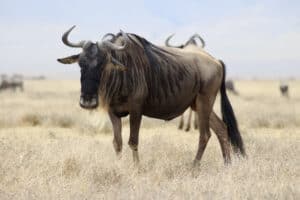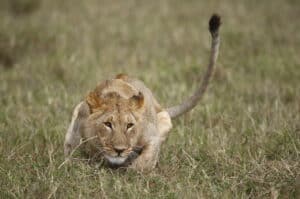Lions are incredible hunters who often work as a team with their pride to hunt prey. The lion in this clip, however, appears to be hunting alone and has caused absolute chaos amongst the baboons. This clip was taken at a national park in Tanzania and captures just how a lion goes about catching a baboon that thinks it has escaped into a tree. It is always a mistake to underestimate a lion!
Witness The Video Below!
Lions Hunting Their Prey
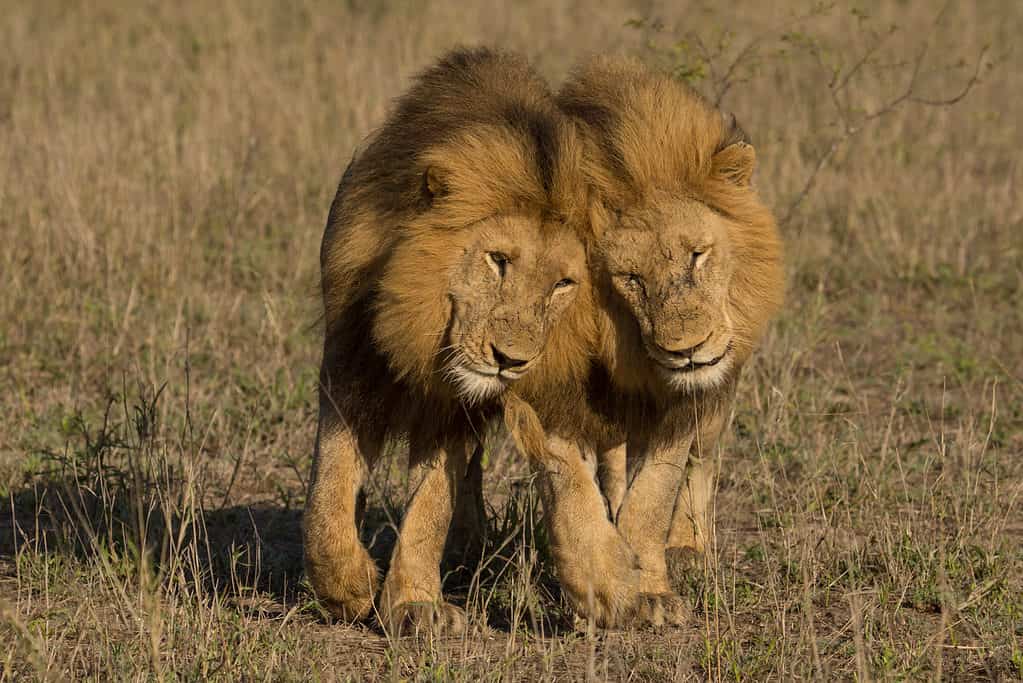
Lions stalk and then charge their prey
©Maryke Scheun/Shutterstock.com
Lions are native to Africa and Asia and tend to live in open woodland, scrub, and grassland. They are one of the largest and most powerful felines on the planet. They usually hunt animals such as gazelle, zebra, and warthogs and do this on the ground!
Their hunting method usually involves stalking the prey, and then, when they are close enough, they have a short charge at the animal and either grab it or knock it over. They kill the animal by clamping their jaws around its neck – this breaks the animal’s neck or suffocates it.
The technique we see here is a variation of that method – the chosen method for lions to hunt baboons is to ambush them on the ground. The lion has singled out one baboon to follow, which is a good way of overcoming the diversionary tactics of a group of animals. The baboon follows its instincts and heads up a tree where a lion is less likely to follow. However, it does not make it up to the higher branches quickly enough. The lion is able to leap up and grasp the baboon, dragging it out of the tree and running off with it.
Lions In Trees
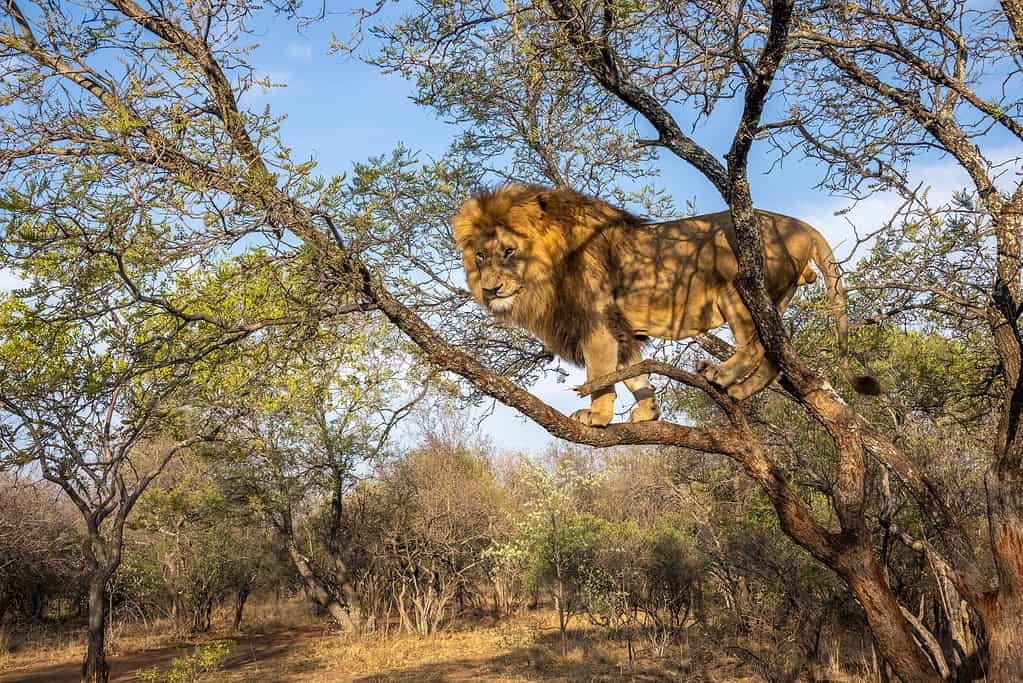
Lions definitely climb trees. After all, they are cats.
©Evelyn D. Harrison/Shutterstock.com
There are many misconceptions about lions and trees! We do not generally think of them as hanging around in trees like leopards do. However, this does not mean that they are never found in trees. It seems that some lions are better at climbing trees than others, and some like to relax on the larger branches.
The baboon made a good choice to head for the tree but was just not fast enough to get to the upper branches. Lions are simply not built for getting up trees in a hurry! They are heavier than a leopard, and their bone structure is different. Also, they lack agility and vertical power. A heavy lion could even injure itself getting down from a high tree!
Is It Normal For a Lion to Eat a Baboon?
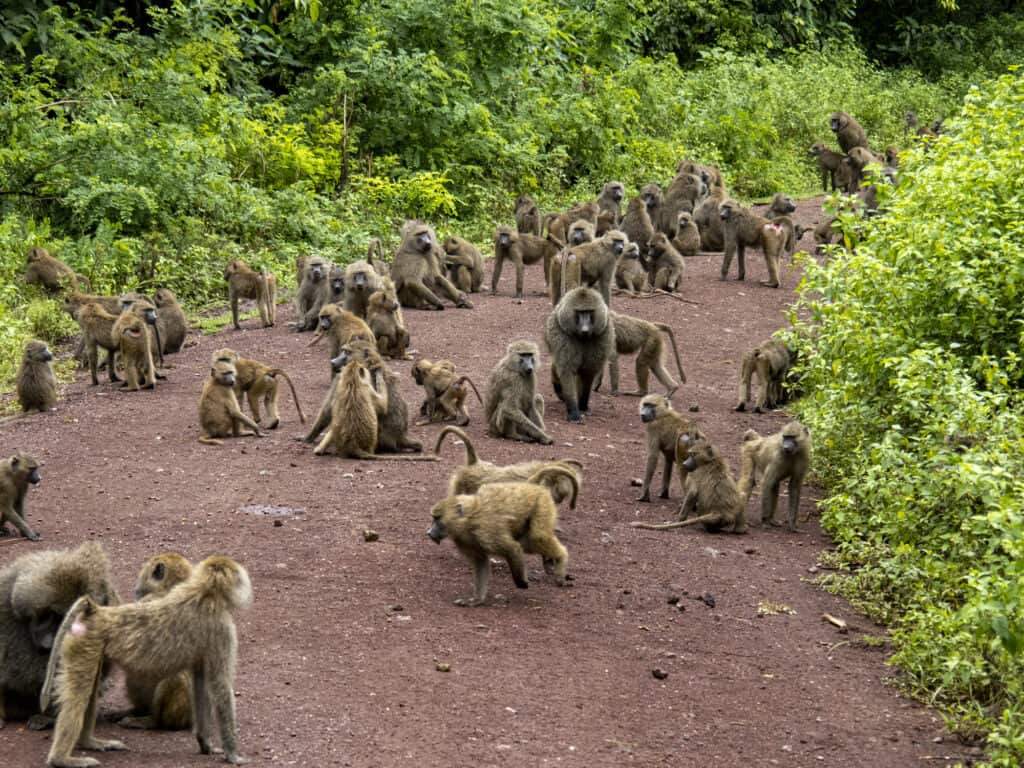
Lions are opportunistic predators and will eat any meat they are able to catch.
©iStock.com/Elise Morris
The diet of a lion consists mainly of medium-sized ungulates, such as wildebeest, antelope, zebra, and buffalo. Lions typically hunt together in groups, called prides, and are most successful when hunting large herds. On average, a lion will consume between 20-30 pounds of meat per day. Lions also scavenge for carrion when available.
It is not uncommon for a lion to consume a baboon, though it is not a regular part of their diet. Lions usually go after baboons when other prey is scarce or when they are in search of an easy meal. Lions have been known to hunt baboons in packs and, if successful, can consume a large amount of baboon meat in one sitting.
The Size of Lions
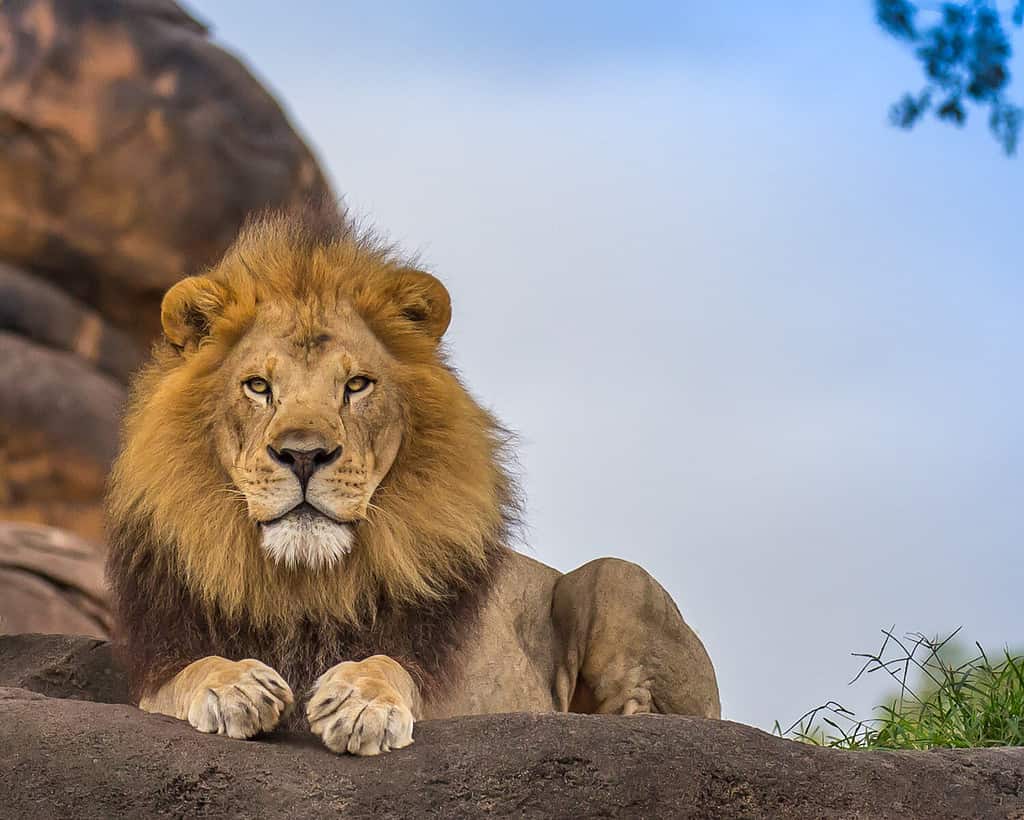
A large male lion can weigh up to 550 pounds!
©Jrossphoto/Shutterstock.com
Lions are known for their impressive size. The average weight of an adult male lion is between 330 and 550 pounds, while female lions typically weigh between 250 and 400 pounds. They can be up to 4 feet tall at the shoulder and up to 9 feet long from head to tail. The paw size of a lion can be up to 6 inches in diameter. Their teeth can be up to 2.5 inches long.
Different types of lions can vary in size. Baby lions, also known as cubs, weigh between 2 and 6 pounds at birth and measure up to 11 inches long. Adult male African lions are the largest of all lion species and can weigh up to 550 pounds. Adult Asiatic lions tend to be a bit smaller, weighing up to 420 pounds. Lions are among the most impressive animals in the world due to their size. Their impressive size allows them to survive and thrive in the wild.
Other Amazing Lion Videos You Might Like
As the King of the Jungle, this formidable beast isn’t something you want chasing you down. As an animal living in close proximity to these big cats, you have to be aware of your surroundings to avoid becoming the next meal. See the lengths this wildebeest will go to in order to survive.
The photo featured at the top of this post is © Henrico Muller/Shutterstock.com
Thank you for reading! Have some feedback for us? Contact the AZ Animals editorial team.




